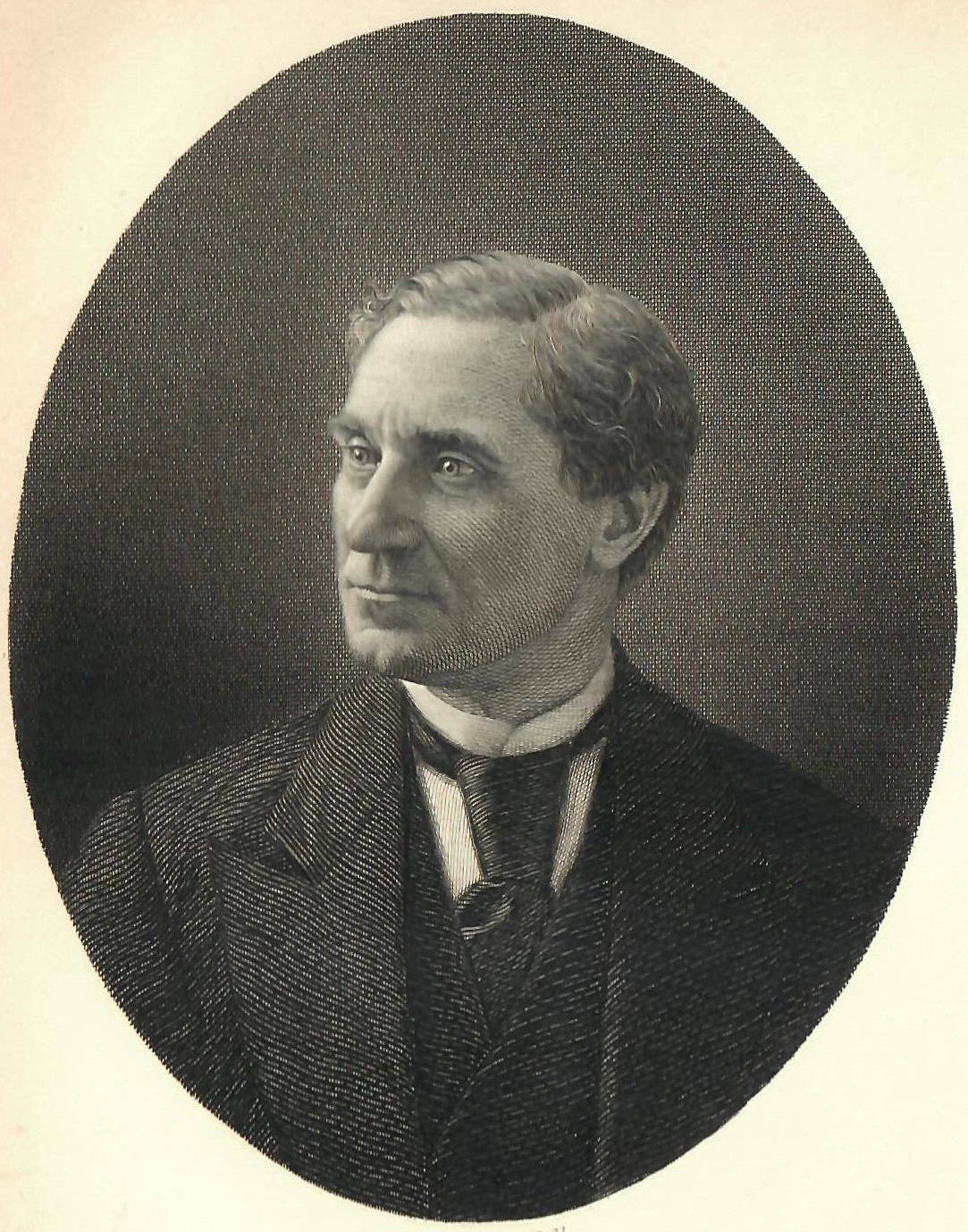Universalist minister, author, and historian

The eldest of three children born to Rev. Nathaniel Langdon (1793-1870) and Ann Gorham (Brooks) Frothingham, Octavius Brooks Frothingham believed becoming a clergyman was predestined. Beyond his father being Harvard’s first Instructor of Rhetoric and Oratory, Octavius notes, in Recollections and Impressions, 1822-1890 (1891), “From childhood I was marked out for a clergyman. This was taken for granted in all places and conversations, and my own thoughts fell habitually into that groove.”
As with several other Transcendentalists, Octavius Brooks Frothingham graduated from Harvard University and Harvard Divinity School. His father was friends with Ralph Waldo Emerson and a maternal aunt was married to Edward Everett. Among Frothingham’s schoolmates were Samuel Longfellow and Thomas Wentworth Higginson. While a member of the Class of 1843, Frothingham was active in clubs including The Speaking Club and, like Thoreau, The 1770 Institute. He was ordained a Unitarian minister on March 10, 1847, and married Caroline Elizabeth Curtis (February 5, 1825 – June 8, 1900) on March 23. The couple had two children in 1850 and 1858, one of which survived to adulthood.
As a newlywed, Frothingham became the Superintendent of Sunday School at North Church in Salem, MA, a position from which he resigned April 9, 1855, over the issue of slavery. Some Unitarians considered him a radical because he was an abolitionist, in opposition to the church’s stance on slavery. For the following five years, Frothingham was pastor in a new Unitarian society in Jersey City, where he rejected the Lord’s Supper, or Communion, as a practice that served self-satisfaction. From 1860-1865, he led the Third Unitarian Congregational Church in New York City.
Considered a radical for being an early and ardent abolitionist, Frothingham held fast to his views, which became more universal and generous over time. He was the first president of the National Free Religious Association (1867) and an early disciple of Darwin and Spencer. In fact, some considered him the leader of the radicals after he addressed the Alumni of the Divinity School on July 19 with his response to Dr. Frederic Henry Hedge’s July 15 address to the Harvard Divinity School’s Class of 1864. Frothingham’s “The New Religion of Nature” is often noted as a response to “Anti-supernaturalism: a sermon preached before the senior class of the Divinity School in Harvard University, July 13, 1845,” by Andrew Preston Peabody, a sermon which is often attributed to Hedge.
His congregation formed the Independent Liberal Church in 1865, when their church building was sold, holding services in Lyric Hall before relocating to a Masonic Temple. Plagued with worsening health issues for several years, Frothingham resigned his post in 1879, with a reception given in his honor at The Union League Theatre. His farewell sermon was given on April 27, 1879, at the Masonic Temple.
Through the remaining years, while living in in New York and Boston, Frothingham wrote art criticisms for The New York Tribune, editorial and literary contributions to The Nation, as well as articles for The Christian Examiner and North American Review among other journals of the time. Frothingham is said to have been a better orator than writer and his eloquence rivaled that of George William Curtis. As the only Transcendentalist historian, Frothingham authored several books, including biographies of Theodore Parker, William Henry Channing, George Ripley, and his own father, also a Unitarian minister, Rev. Nathaniel Langdon Frothingham.
In “Memoir of Octavius Brooks Frothingham” (in Proceedings of the Massachusetts Historical Society, March, 1896), J.P. Quincy states, “Like many other refined and thoughtful men, he was convinced of the advantages of cremation, not only for the sanitary reasons which in this day of ever-growing cities seem imperative, but as reducing to a minimum the necessary expenses of the poor. He saw that the money spent in buying land and constructing sepulchres in our ostentatious and tasteless cemeteries might be used in better ways for the gratification of the sentiments of love and reverence towards the departed.” Exemplifying his convictions to the end, after dying at his Boston home on November 27, 1895, Frothingham was cremated and his ashes were buried at Mount Auburn Cemetery in Cambridge, MA.
Selected Works:
Poem: Unitarians Affirm that the Spirit of Christianity is the Spirit of Service, “Put on the Whole Armor of God. Ephesians VI, 13” (1846).
The Unitarian Faith Set Forth in Fifty Unitarian Hymns (1914), pg. 28, hymn written for Harvard Divinity School’s 1846 graduation exercises.
Addresses:
“The New Religion of Nature.” (1864)
Farewell Sermon, delivered at the Masonic Temple, April 27, 1897
——————————
Stories from the Lips of the Teacher (1863)
Studies of Religious History and Criticism (trans. from French, M. Ernest Renan) (1864)
A Child’s Book of Religion: For Sunday Schools and Homes (1866)
The Religion of Humanity (1873)
Sermons, Vol. 2 (1874)
Theodore Parker: A Biography (1874)
The Safest Creed: And Twelve Other Recent Discourses of Reason (1874)
Beliefs of the Unbelievers: and Other Discourses (1876)
Transcendentalism in New England (1876; 1880)
The Cradle of the Christ: A Study in Primitive Christianity (1877)
The Spirit of New Faith (1877)
Gerrit Smith: A Biography (1878, 1909)
The Rising and the Setting Faith (1878)
George Ripley (1882), edited by Charles Dudley Warner
Memoir of William Henry Channing (1886)
Boston Unitarianism 1820-1850: A Study of the Life and Work of Nathaniel Langdon Frothingham (1890)
Stories of the Patriarchs (1890)
Recollections and Impressions (1891)

